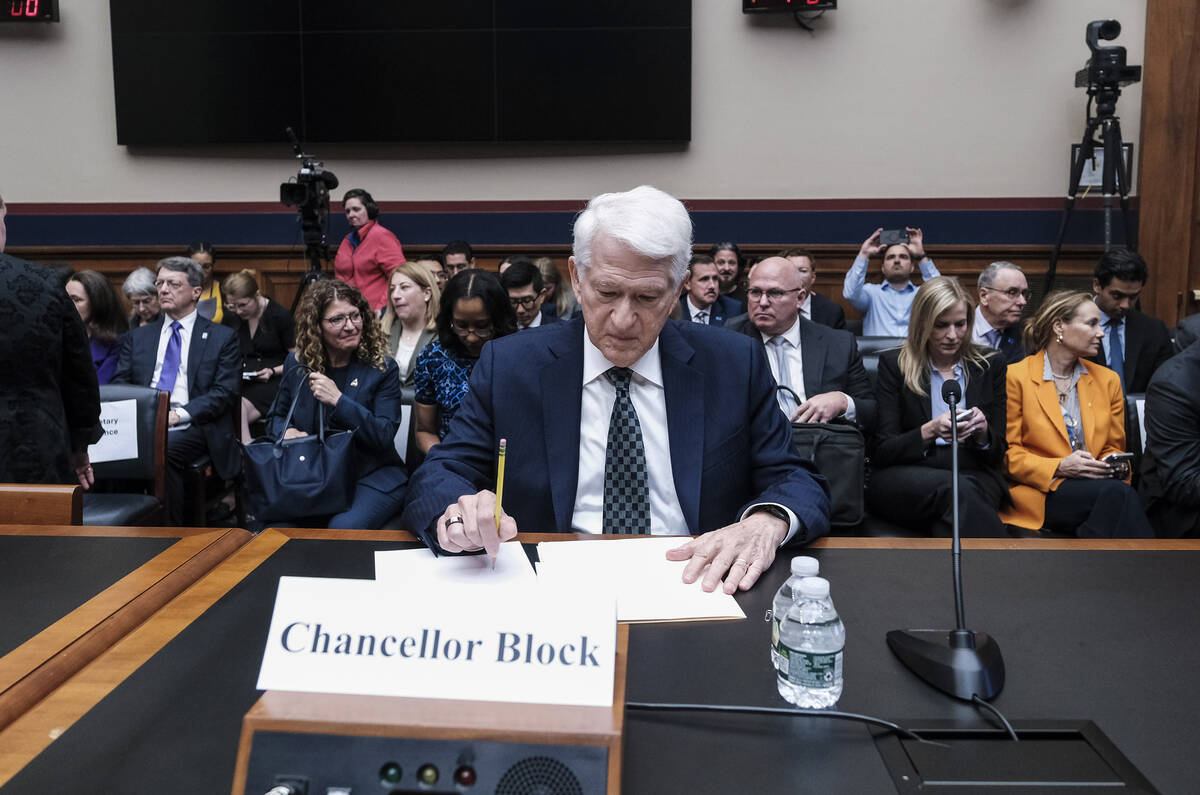Takeaways from UCLA Chancellor Gene Block’s testimony on campus antisemitism, protests
WASHINGTON — UCLA Chancellor Gene Block found himself in the nation’s culture wars hot seat this past week, interrogated by members of Congress about his handling of complaints of campus antisemitism, amid student protests over the Israel-Hamas war.
For Republican Congress members, the hearing organized by the GOP-led House Committee on Education and the Workforce was a chance to present the University of California, Los Angeles as exhibit A in how not to deal with protests.
Almost as soon as activists set up a Palestinian solidarity encampment April 25 in the heart of campus, Jewish students and faculty complained that demonstrators established checkpoints restricting access to many students, at times singling out students they identified as Zionists.
After pro-Israeli counterprotesters attacked the encampment on April 30, it was dismantled May 2, with law enforcement arresting more than 200 people.
“Over the course of years, decades even, universities gradually nurtured a campus culture of radicalism, in which antisemitism grew and became tolerated by administrators,” Virginia Foxx, the commitee chair, said in her opening remarks.
The Republican from North Carolina assailed Block for allowing UCLA’s protests to spiral out of control.
“For days, you stood by as Jews were assaulted and illegal checkpoints blocked access to campus in broad daylight,” Foxx said. “Your actions were too little, too late.”
In his opening testimony, Block conceded that UCLA made errors in judgment. The encampment, he said, “disrupted normal access to some classes” and “impeded our educational mission.”
“With the benefit of hindsight,” he said, “we should have been prepared to immediately remove the encampment if and when the safety of our community was put at risk.”
Block did not specify what UCLA should have done to prevent discrimination or violence as protests ramped up. And he did not explain why the university did not take action as students reported discrimination from protesters and outside agitators gathered on campus.
Striking a mild, noncombative approach throughout, Block did not say what campus discipline had been — or would be — meted out to students who violated UCLA rules.
Rep. Ilhan Omar, D-Minn., criticized UCLA leaders for standing by for hours as a “mob of agitators” gathered near the encampment.
Block said he rejected the premise of the question. Block said the Los Angeles Police Department was working to identify the attackers.
Rep. Kevin Kiley, a California Republican, asked Block whether physically obstructing students from entering campus based on their race, ethnicity or religion is an expellable offense.
‘There is a disciplinary process,” Block said. “It could be.”
Kiley played a viral video showing UCLA protesters blocking a student, Eli Tsives, from passing a checkpoint.
“Were those students who formed blockade?” Kiley said. “Were they disciplined?”
Block said he didn’t know, repeating that he sent out a memo April 30 instructing the campus community that blocking students’ passage was intolerable.
Block, who is Jewish and has family members who died in the Holocaust, said UCLA has a problem with antisemitism.
“I am fully aware that many of our Jewish students have had to confront rhetoric and images on campus that any reasonable person would find repugnant,” Block said in his opening statement. “Trust me, I understand their pain.”
Asked by Rep. Kathy Manning, a Democrat from North Carolina, about emails dating to 2014 that show alumni had alerted the chancellor of growing antisemitism, Block said the university had tried to respond with training.
About 90 percent of students, he said, had taken an online training course that includes discussion of antisemitism.
Manning asked whether students and staff need additional training.
“I think we need to do more,” Block said.






















